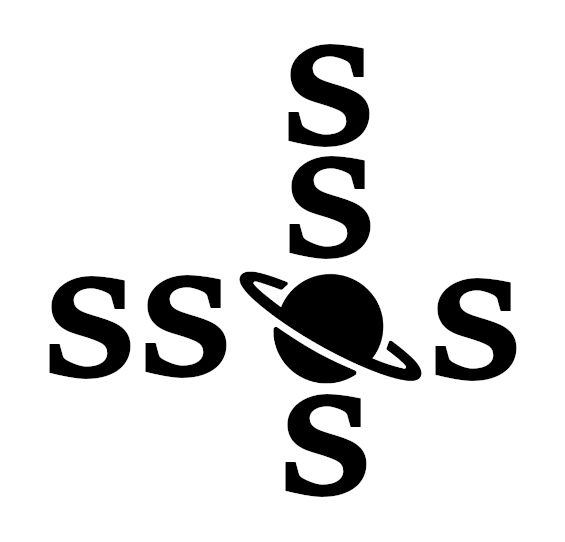Get to know the people that are working on topics related to Outer Space from a social science perspective!
We are inherently interdisciplinary and certainly international. Our common cause: We share a fascination for space research and technology, its applications, utopias and technosocial inner workings within society. While most of us relate to the social sciences and some to the field of Science and Technology Studies (STS), our interests focus on epistemologies, ontologies, politics, aesthetics and practices related to outer space.
SSOS Network Coordination Team:
A.R.E. Taylor
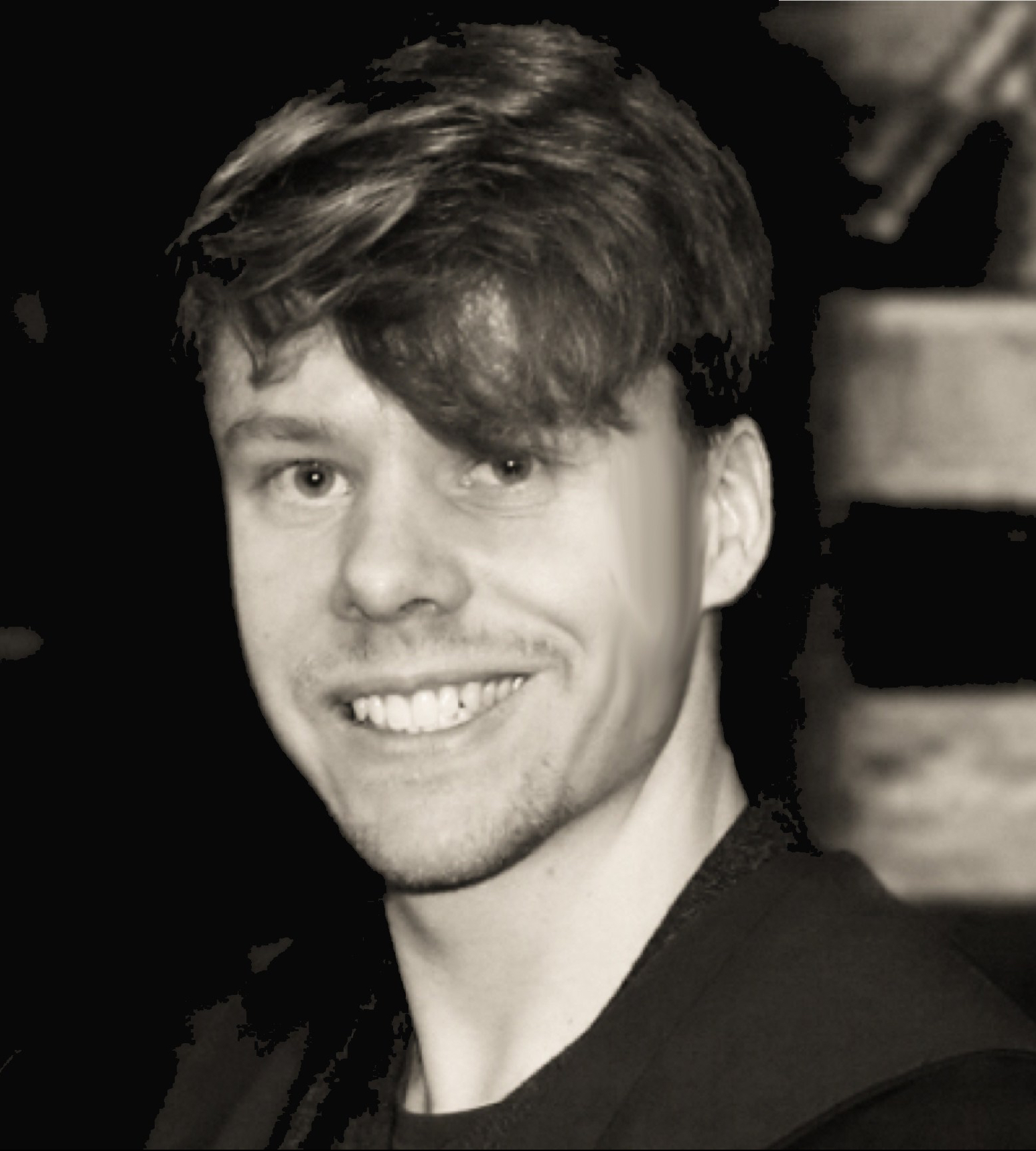
A.R.E. Taylor is Senior Lecturer in Communications at the University of Exeter (UK) and one of the founders of the Social Studies of Outer Space (SSOS) Network. He is an anthropologist of data and communications infrastructure and a former Marconi Fellow in the History and Science of Wireless Communication at the University of Oxford. His research concentrates on the material infrastructure that underpins communications services, with a key focus on data centres and satellites. He is especially interested in disruptions to service caused by space weather. He has written about space weather for the infrastructure studies journal Roadsides. His writing has also been published in venues such as The Routledge Handbook of Social Studies of Outer Space, New Media & Society, The Journal of the Royal Anthropological Institute, Ephemera, Culture Machine, The Routledge Companion to Media Anthropology, Failed Architecture, The Conversation and The Resilience Shift, among others. He is an Editorial Assistant for the Journal of Extreme Anthropology and a founder of the Cambridge Infrastructure Resilience Group (CIRG), a network of researchers exploring critical infrastructure protection in relation to global catastrophic risks.
Email: a.r.e.taylor@exeter.ac.uk
X / Twitter: @alexretaylor
LinkedIn: https://www.linkedin.com/in/aretaylor/
Matjaz Vidmar
 Matjaz Vidmar is a Lecturer in Engineering Management and Deputy Director of the Institute for the Study of Science, Technology and Innovation at the University of Edinburgh, in Scotland, UK. His background is in Physics and Astronomy as well as Social Science, with a PhD in Science and Technology Studies on the topic of organisational learning and innovation processes within high-tech domains. His research is examining systems engineering within emerging technology, especially R&D networks and processes, innovation intermediation and futures design. He is working in particular with the satellite and space data, biotechnology and artificial intelligence. He is also involved in many international initiatives to develop the future of these fields, including several start-up companies and an extensive public engagement programme on STEM and arts, and futures literacy. You can find more about Matjaz, his work, and how to get in touch, at: www.blogs.ed.ac.uk/vidmar.
Matjaz Vidmar is a Lecturer in Engineering Management and Deputy Director of the Institute for the Study of Science, Technology and Innovation at the University of Edinburgh, in Scotland, UK. His background is in Physics and Astronomy as well as Social Science, with a PhD in Science and Technology Studies on the topic of organisational learning and innovation processes within high-tech domains. His research is examining systems engineering within emerging technology, especially R&D networks and processes, innovation intermediation and futures design. He is working in particular with the satellite and space data, biotechnology and artificial intelligence. He is also involved in many international initiatives to develop the future of these fields, including several start-up companies and an extensive public engagement programme on STEM and arts, and futures literacy. You can find more about Matjaz, his work, and how to get in touch, at: www.blogs.ed.ac.uk/vidmar.
Email: matjaz.vidmar@ed.ac.uk
Michael Clormann
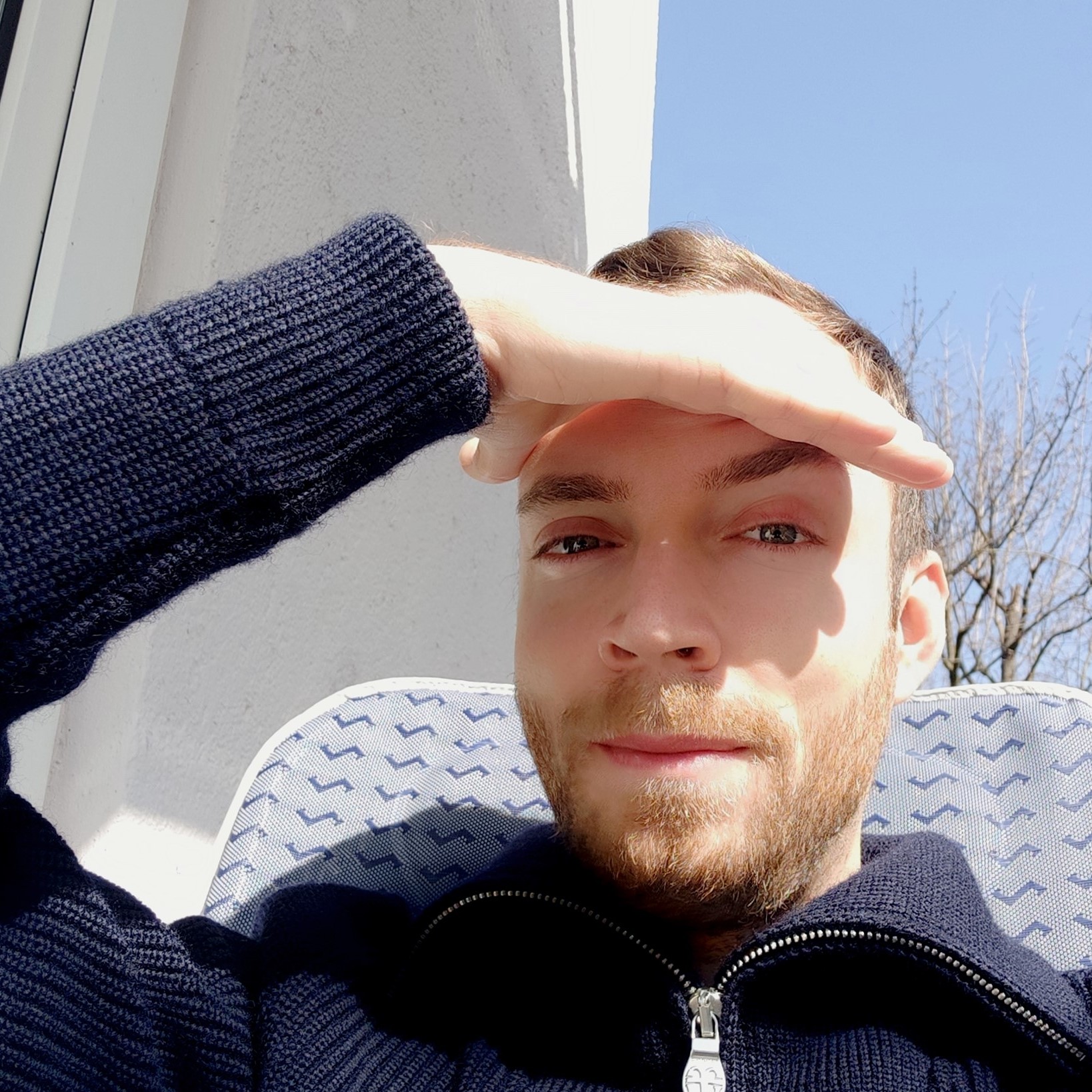 Michael Clormann is an innovation researcher and knowledge exchange practitioner at the University of Hamburg. Formerly he was a research associate at the Friedrich Schiedel Endowed Chair of Sociology of Science and the Munich Center for Technology in Society at the Technical University of Munich. In his PhD project concluded in October 2021, he conducted research on the narratives and practices of innovation and sustainability in the European space sector in the “New Space Age”. His research focus is the phenomenon of space debris and its increased relevance through recent technological, political and ecological developments in (human) spaceflight and beyond.
Michael Clormann is an innovation researcher and knowledge exchange practitioner at the University of Hamburg. Formerly he was a research associate at the Friedrich Schiedel Endowed Chair of Sociology of Science and the Munich Center for Technology in Society at the Technical University of Munich. In his PhD project concluded in October 2021, he conducted research on the narratives and practices of innovation and sustainability in the European space sector in the “New Space Age”. His research focus is the phenomenon of space debris and its increased relevance through recent technological, political and ecological developments in (human) spaceflight and beyond.
He was a lecturer in two of the Technical University of Munich’s engineering programs – cooperating with current and future aerospace engineers. In his capacity as a knowledge exchange professional, he has cooperated with space industry players in conducting stakeholder workshops. Additionally he has been working as a freelance journalist covering aerospace related topics since 2012.
Research interests:
- Sustainability and innovation practices in (human) spaceflight
- Ontologies and epistemologies of planetary space applications
- Securitization of space debris in the New Space Age (with Nina Witjes)
Email: michael.clormann@uni-hamburg.de
Tamara Alvarez
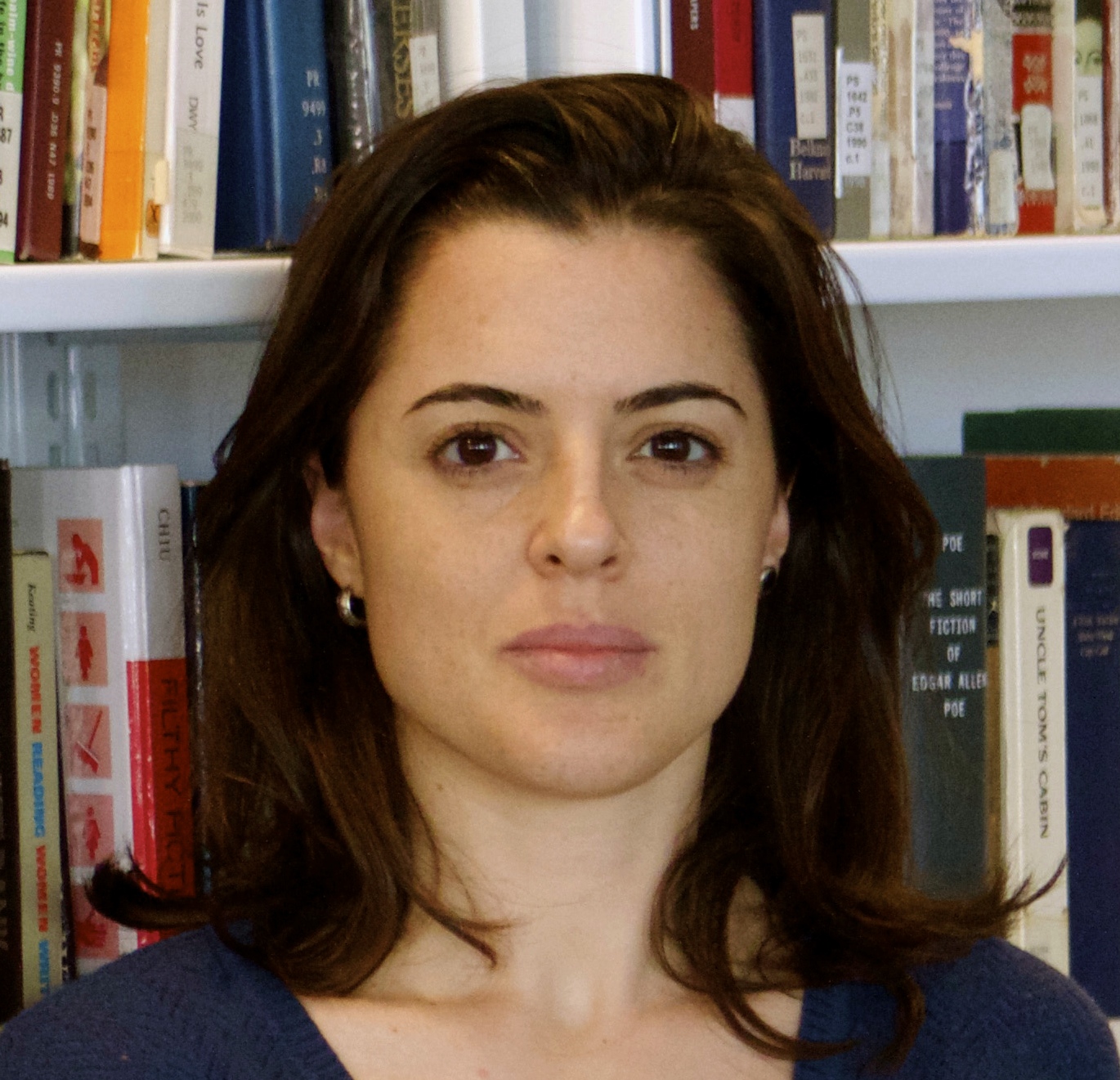 Tamara Alvarez is a Teaching Fellow and a PhD candidate in Anthropology at The New School for Social Research. Since 2016 Alvarez has been doing research at several space institutions, most notably the European Space Agency. Her research project, “Living on the Moon: Humans as Interplanetary Species,” focuses on the legal, political, and sociotechnical practices that are transforming the Moon into an extractive site and a home for humans. Alvarez has taught courses in Global Studies, Anthropology, and Transdisciplinary Design and has spoken at the European Space Research and Technology Center, University College London, and Strelka Institute, among others. Alvarez is member of the Space Generation Advisory Council’s Space Law & Policy Working Group and the Moon Village Association. Currently, she collaborates with the International Lunar Exploration Working Group in the Swiss Space Center’s IgLuna project.
Tamara Alvarez is a Teaching Fellow and a PhD candidate in Anthropology at The New School for Social Research. Since 2016 Alvarez has been doing research at several space institutions, most notably the European Space Agency. Her research project, “Living on the Moon: Humans as Interplanetary Species,” focuses on the legal, political, and sociotechnical practices that are transforming the Moon into an extractive site and a home for humans. Alvarez has taught courses in Global Studies, Anthropology, and Transdisciplinary Design and has spoken at the European Space Research and Technology Center, University College London, and Strelka Institute, among others. Alvarez is member of the Space Generation Advisory Council’s Space Law & Policy Working Group and the Moon Village Association. Currently, she collaborates with the International Lunar Exploration Working Group in the Swiss Space Center’s IgLuna project.
Email: alvat032@newschool.edu
Nina Witjes
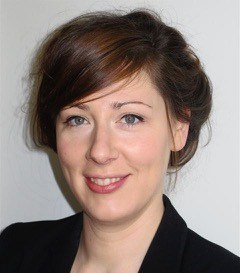 Nina Witjes is a university assistant (post-doc) at the Department of Science and Technology Studies, Vienna University. In her work she explores the role of technological innovations, international relations and knowledge practices in securitization processes with a special focus on space programs, satellite technologies and space debris. Recent publications include an edited volume on „Sensing Security: Sensors as Transnational Security Infrastructures“ (forthcoming) and „A Fragile Transparency: Satellite Imagery and the Making of International Security Issues“ (Science and Public Policy).
Nina Witjes is a university assistant (post-doc) at the Department of Science and Technology Studies, Vienna University. In her work she explores the role of technological innovations, international relations and knowledge practices in securitization processes with a special focus on space programs, satellite technologies and space debris. Recent publications include an edited volume on „Sensing Security: Sensors as Transnational Security Infrastructures“ (forthcoming) and „A Fragile Transparency: Satellite Imagery and the Making of International Security Issues“ (Science and Public Policy).
Research interests:
- The co-production of European Space Policy and European Integration Processes
- Simulations of Mars habitats in different techno political cultures
- Securitization of space debris in the New Space Age (with Michael Clormann)
Email: nina.witjes@univie.ac.at
Richard Tutton
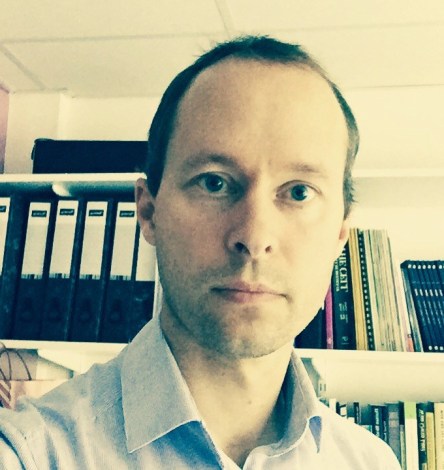 Richard Tutton is Senior Lecturer in the Department of Sociology and co-Director of Science and Technology Studies Unit (SATSU) at the University of York. Since 2015, Richard has been developing research interests in ‘multiplanetary imaginaries’ – in other words, how imagined futures of human beings living on other planets and on Earth are made, performed, and contested. He is especially interested in the role of entrepreneurs such as Elon Musk and Jeff Bezos in the contemporary space sector. In 2017, he published ‘Multiplanetary Imaginaries and Utopia: The Case of Mars One’ in Science, Technology, & Human Values, 43 (3), 518–539.
Richard Tutton is Senior Lecturer in the Department of Sociology and co-Director of Science and Technology Studies Unit (SATSU) at the University of York. Since 2015, Richard has been developing research interests in ‘multiplanetary imaginaries’ – in other words, how imagined futures of human beings living on other planets and on Earth are made, performed, and contested. He is especially interested in the role of entrepreneurs such as Elon Musk and Jeff Bezos in the contemporary space sector. In 2017, he published ‘Multiplanetary Imaginaries and Utopia: The Case of Mars One’ in Science, Technology, & Human Values, 43 (3), 518–539.
Email: richard.tutton@york.ac.uk
Denis Sivkov
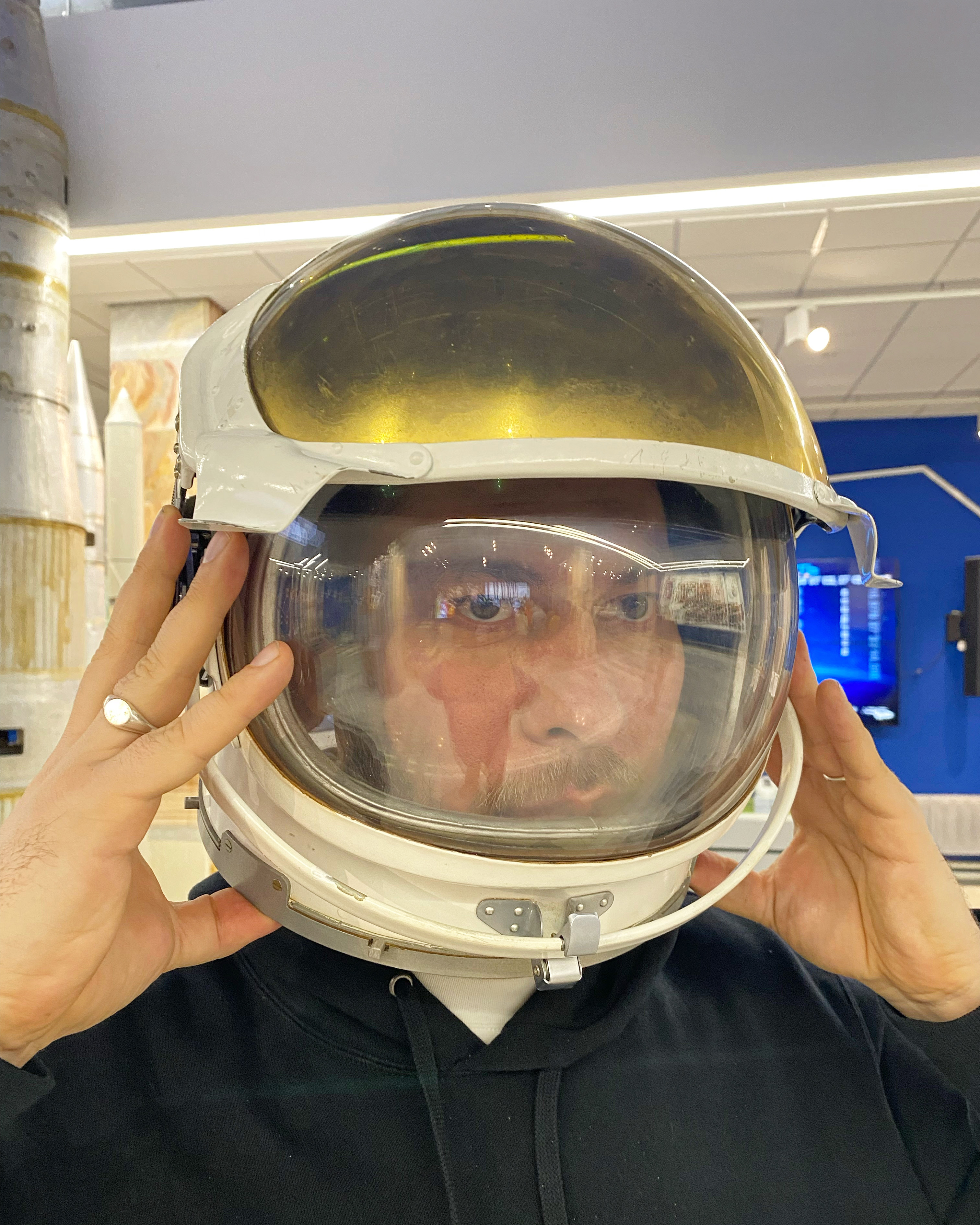 Denis Sivkov is a lecturer with the Institute for Social Sciences at the Russian Presidential Academy of National Economy and Public Administration, in Moscow, Russia. He received his PhD in Philosophy from Volgograd State University. His work is located at the intersection of STS and the anthropology of outer space. His current research project, ‘Space Exploration at Home: Amateur Cosmonautics in Contemporary Russia’, focuses on non-commercial and non-professional projects of space exploration in post-Soviet Russia. This research examines how outer space and space exploration might come to matter not only at the level of nation-states and humanity as whole but in the private sphere of ordinary people. Amateur cosmonautics could demonstrate new ways of inventing, new ways of redistributing time and work resources, as well as alternative methods for sourcing and testing technologies, materials and components for the extreme environments of outer space.
Denis Sivkov is a lecturer with the Institute for Social Sciences at the Russian Presidential Academy of National Economy and Public Administration, in Moscow, Russia. He received his PhD in Philosophy from Volgograd State University. His work is located at the intersection of STS and the anthropology of outer space. His current research project, ‘Space Exploration at Home: Amateur Cosmonautics in Contemporary Russia’, focuses on non-commercial and non-professional projects of space exploration in post-Soviet Russia. This research examines how outer space and space exploration might come to matter not only at the level of nation-states and humanity as whole but in the private sphere of ordinary people. Amateur cosmonautics could demonstrate new ways of inventing, new ways of redistributing time and work resources, as well as alternative methods for sourcing and testing technologies, materials and components for the extreme environments of outer space.
Other research interests:
- The ontological turn in space exploration
- Soviet and Russian cosmonaut’s diaries as ethnographic documents
- Video ethnography of spacewalks
Email: d.y.sivkov@gmail.com
Twitter: @SendiVovkis
SSOS Network Affiliated Members:
David Jeevendrampillai
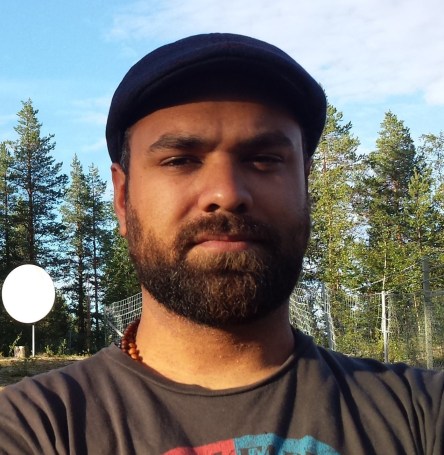
Dr David Jeevendrampillai is an Anthropological Research Fellow at Social Anthropology, NTNU Trondheim and an Honorary Research Fellow of the Space Domain, University College London. His interests concern people’s relationship to place, territory and belonging. He is researching the curation, narration and use of Earth Imagery from the International Space Station particularly in relation to the overview effect and the relation to emergent notions of humanity and its futures. He is interested in anthropology of the future, technology and modernity, the politics of knowing place and the ways in which space science produces new conceptions of the human. As well as a strong interest in emergent conceptualisations of territory and belonging he is interested in emergent conceptions of the human body, particularly in relation to technology and data. His interests encompass but are not limited to discussions on land rights, post-cosmopolitanisms and colonialism.
Email: david.jeevendrampillai.10@ucl.ac.uk
Deborah Scott
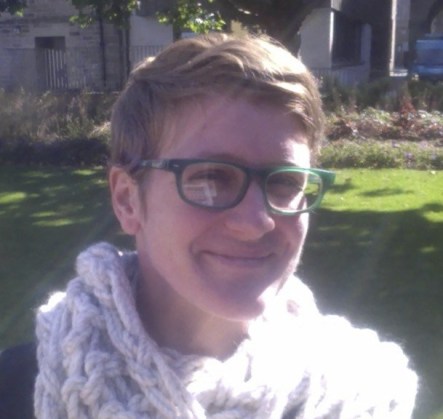 I’m a human geographer (PhD 2015, Rutgers University) and lawyer (JD 2005, Lewis & Clark Law School). As part of the Engineering Life project, led by Jane Calvert, I focus on the governance of synthetic biology, decision-making around emerging technosciences, and the political theory behind and practice of Responsible Research and Innovation. I’m passionate about outer space law and policy, and the narratives of science, exploration, and (de)colonization that guide these. I am currently leading Scotland in Space, a project bringing together sci-fi authors, space scientists, and social scientists and humanities scholars to develop short stories and accompanying essays exploring issues of identity, nationhood, connection to others, and relationships with and through technology.
I’m a human geographer (PhD 2015, Rutgers University) and lawyer (JD 2005, Lewis & Clark Law School). As part of the Engineering Life project, led by Jane Calvert, I focus on the governance of synthetic biology, decision-making around emerging technosciences, and the political theory behind and practice of Responsible Research and Innovation. I’m passionate about outer space law and policy, and the narratives of science, exploration, and (de)colonization that guide these. I am currently leading Scotland in Space, a project bringing together sci-fi authors, space scientists, and social scientists and humanities scholars to develop short stories and accompanying essays exploring issues of identity, nationhood, connection to others, and relationships with and through technology.
Research interests:
- Planetary protection policies
- Synthetic biology and outer space
- Using speculative fiction to explore alternative visions of humanity’s engagement with space with stakeholders and various publics
Email: Deborah.Scott@ed.ac.uk
Taylor R. Genovese
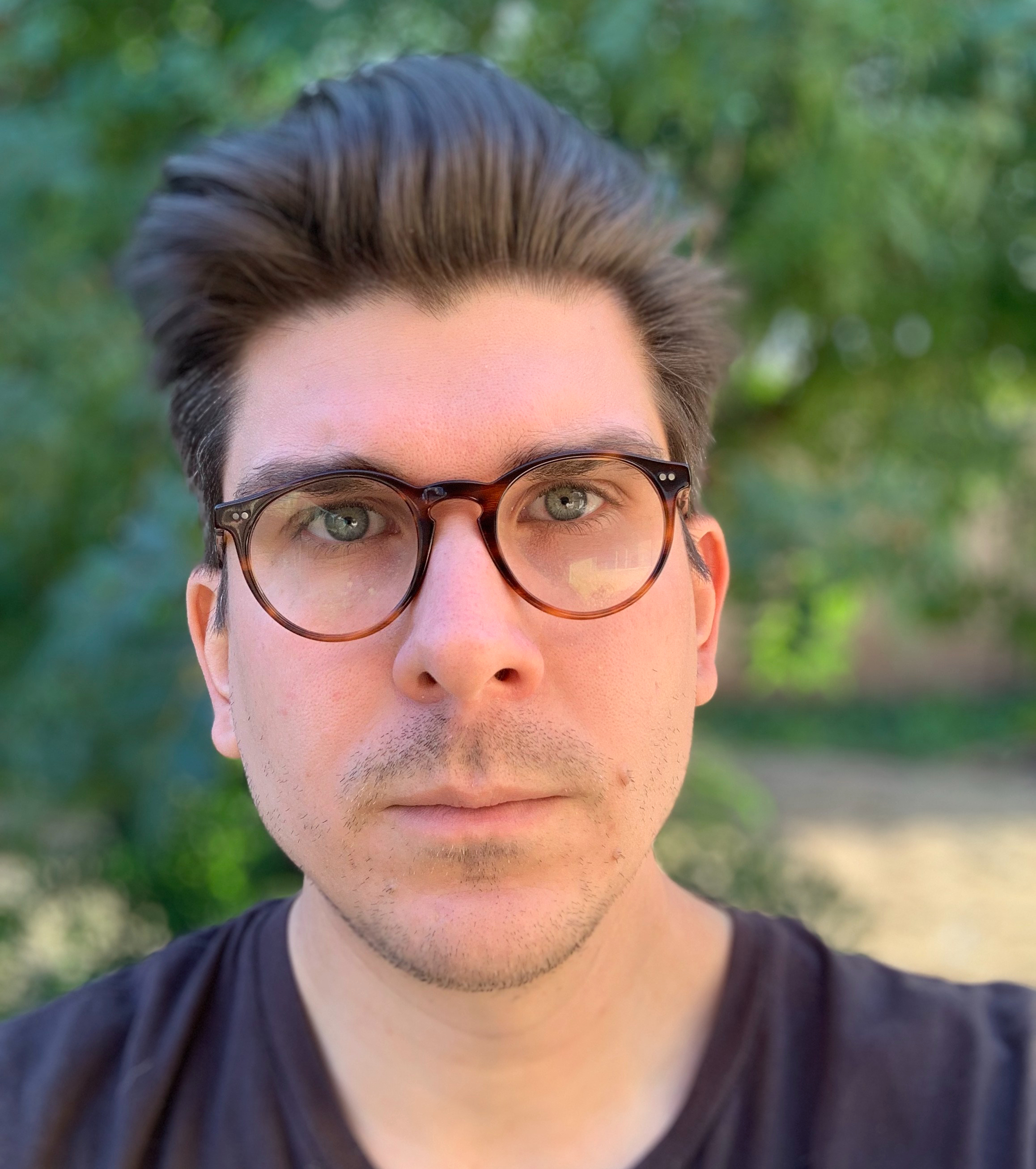 Taylor R. Genovese is a doctoral student in the Human and Social Dimensions of Science and Technology program at Arizona State University, where he is pursuing his interest in the social imaginaries of human futures on Earth and in outer space. His dissertation work focuses on producing a genealogy of futurist discourse surrounding human immortality and space travel. He is tracing the legacy of these ideas from the Proletkult movement as well as from the Russian Cosmists, a loose-knit esoteric political-spiritual-artistic group operating in the decades surrounding the Russian Revolution. He is interested in the ways in which utopian ideas rooted in human solidarity get transmuted into the egocentric dreams of the wealthy through declensionist narratives. You can find out more at taylorgenovese.com or on Twitter at @trgenovese.
Taylor R. Genovese is a doctoral student in the Human and Social Dimensions of Science and Technology program at Arizona State University, where he is pursuing his interest in the social imaginaries of human futures on Earth and in outer space. His dissertation work focuses on producing a genealogy of futurist discourse surrounding human immortality and space travel. He is tracing the legacy of these ideas from the Proletkult movement as well as from the Russian Cosmists, a loose-knit esoteric political-spiritual-artistic group operating in the decades surrounding the Russian Revolution. He is interested in the ways in which utopian ideas rooted in human solidarity get transmuted into the egocentric dreams of the wealthy through declensionist narratives. You can find out more at taylorgenovese.com or on Twitter at @trgenovese.
Email: taylor.genovese@asu.edu
Aaron Parkhurst
![IMG_0038[1]](https://ssosnetwork.org/wp-content/uploads/2019/03/img_00381-e1551879836830.jpg) My research interests are broadly focused in medical anthropology, the anthropology of science and genetics, cyborg anthropology and space medicine, anthropology of the body, and anthropology of Islamic societies. My PhD research focused on the ways in which identity is constructed in the United Arab Emirates in the face of religion, rapid development, health systems, technology, and immigration. My thesis, Genes and Djinn: Anxiety and Identity in Southeast Arabia, draws upon ethnographic data collected over three years in Dubai and Abu Dhabi to explore how foreign knowledge systems, both medical and social, are incorporated into indigenous bodies of knowledge to reshape the ways in which local people see themselves in the world. New research projects include ethnographic studies of British cyborgs, new bioethics, Medical Materiality, the anthropology of emerging technology, the anthropology of sport, the anthropology of space, and health policy and planning in the UK.
My research interests are broadly focused in medical anthropology, the anthropology of science and genetics, cyborg anthropology and space medicine, anthropology of the body, and anthropology of Islamic societies. My PhD research focused on the ways in which identity is constructed in the United Arab Emirates in the face of religion, rapid development, health systems, technology, and immigration. My thesis, Genes and Djinn: Anxiety and Identity in Southeast Arabia, draws upon ethnographic data collected over three years in Dubai and Abu Dhabi to explore how foreign knowledge systems, both medical and social, are incorporated into indigenous bodies of knowledge to reshape the ways in which local people see themselves in the world. New research projects include ethnographic studies of British cyborgs, new bioethics, Medical Materiality, the anthropology of emerging technology, the anthropology of sport, the anthropology of space, and health policy and planning in the UK.
Email: a.parkhurst@ucl.ac.uk
Gabriela Radulescu
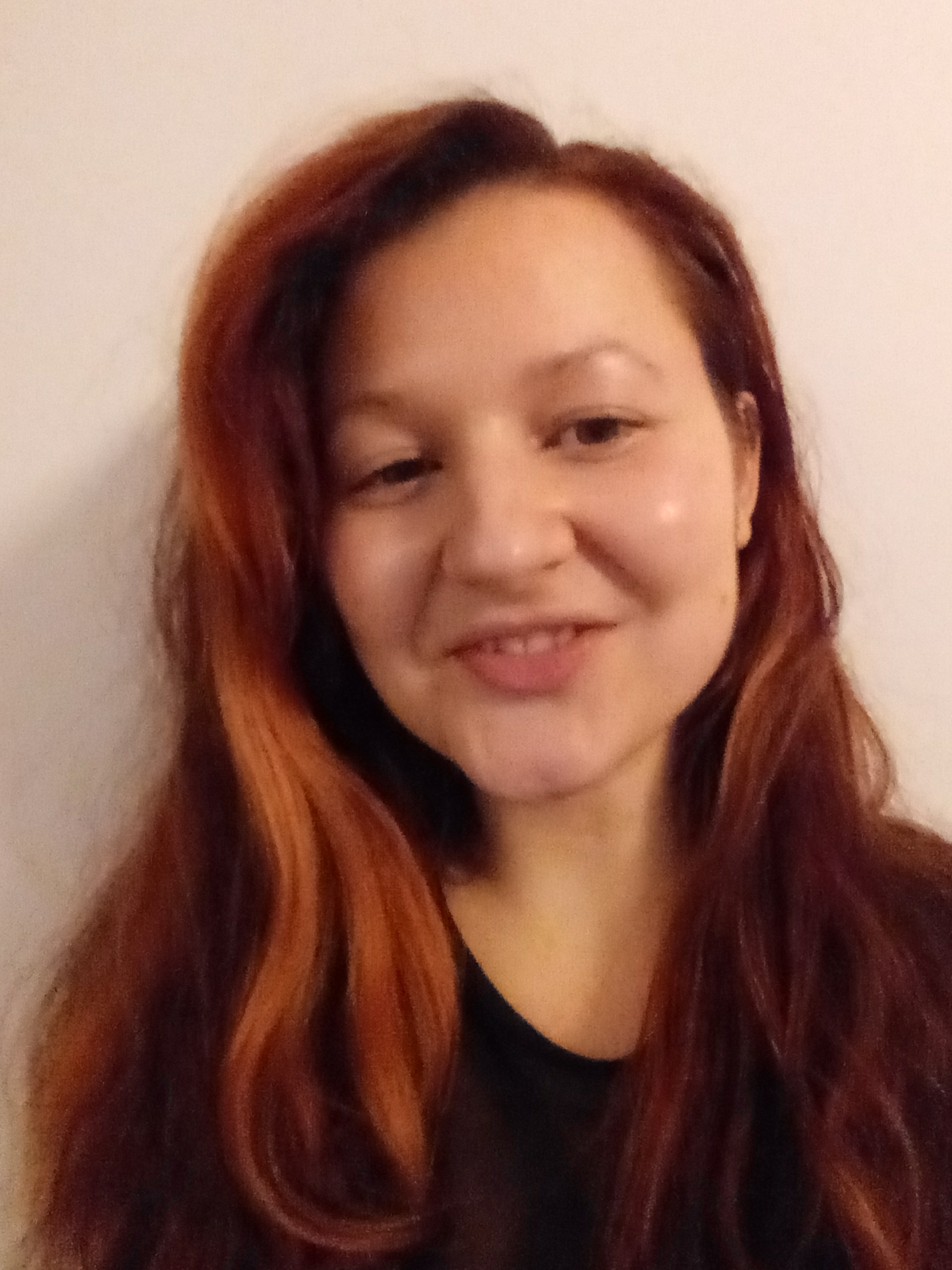 Gabriela Radulescu received a Master’s Degree in Anthropology from the National University of Political Science and Public Administration, in Bucharest and a Bachelor’s degree in Philosophy (University of Bucharest). She is currently working on her second Master’s thesis, in the History of Science and Ideas, on the Soviet search for extraterrestrial intelligence. Gabriela is based in Berlin, as part of an exchange program with the University of Iceland, in Reykjavik – where she has been living for over three years. As a terrestrial explorer, Gabriela has been working and volunteering with different international projects, including organizing and hosting events for popularizing science and ideas in Reykjavik. Her research interests are the extraterrestrial imaginary, psychoanalysis and the extraterrestrial space, extraterrestrial language and communication, and human culture projections into space. Gabriela is concerned with increasing the public impact of academic research. In the past she has reviewed academic books in anthropology and is currently writing a scientifically-informed science fiction novel.
Gabriela Radulescu received a Master’s Degree in Anthropology from the National University of Political Science and Public Administration, in Bucharest and a Bachelor’s degree in Philosophy (University of Bucharest). She is currently working on her second Master’s thesis, in the History of Science and Ideas, on the Soviet search for extraterrestrial intelligence. Gabriela is based in Berlin, as part of an exchange program with the University of Iceland, in Reykjavik – where she has been living for over three years. As a terrestrial explorer, Gabriela has been working and volunteering with different international projects, including organizing and hosting events for popularizing science and ideas in Reykjavik. Her research interests are the extraterrestrial imaginary, psychoanalysis and the extraterrestrial space, extraterrestrial language and communication, and human culture projections into space. Gabriela is concerned with increasing the public impact of academic research. In the past she has reviewed academic books in anthropology and is currently writing a scientifically-informed science fiction novel.
Email: radulesg@hu-berlin.de
Website: https://hu-berlin.academia.edu/GabrielaRadulescu
Craig Jones
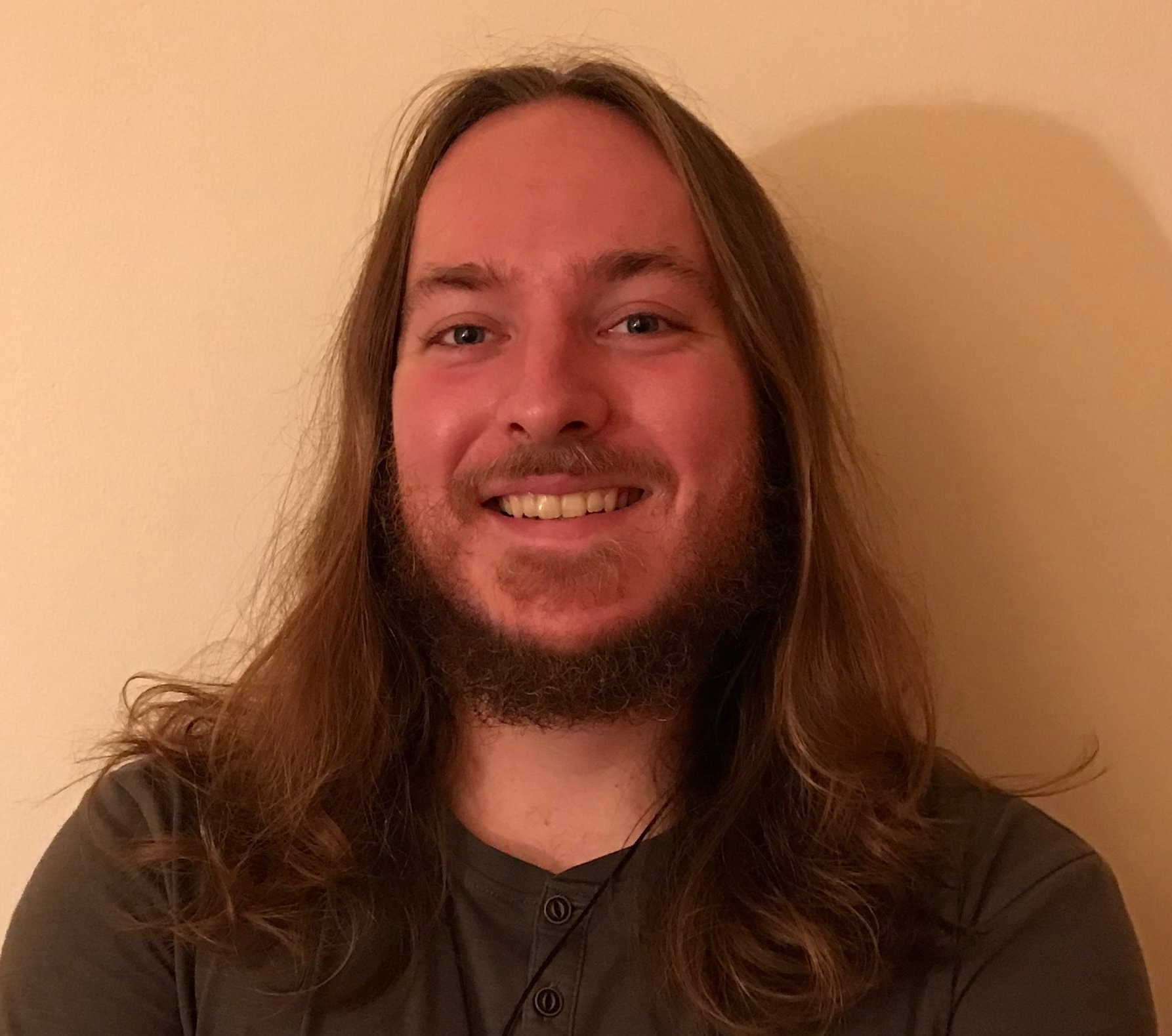
Craig Jones is a PhD candidate and Associate Lecturer in Geography at Lancaster University. Craig completed his MRes project entitled ‘Ethnofuturism: Addressing the Cultural Divide in Outer Space’ in 2016 and his PhD research aims to build on this work. His research project ‘(De)Colonising the ‘Final Frontier’: Extraterestrial Extractivism and Ethnofuturist Engagements’ considers the ways outer space is (re)constructed through different sociocultural imaginaries and articulations, centring itself around asteroid mining as a new extractive ‘frontier’. The project has engaged with both actors in New Space Economy and Ethnofuturist artists, exploring how these futures are constructed and how they may be challenged and contested through different sociocultural positionings. Craig has taught on Qualitative Research Methods and on Geosocial Spaces. He has presented work at the RGS-IBG, SiP, POLLEN, and EASST conferences. He is an ESRC 1+3 Studentship recipient.
Email: c.jones21@lancaster.ac.uk
Julia Heuritsch
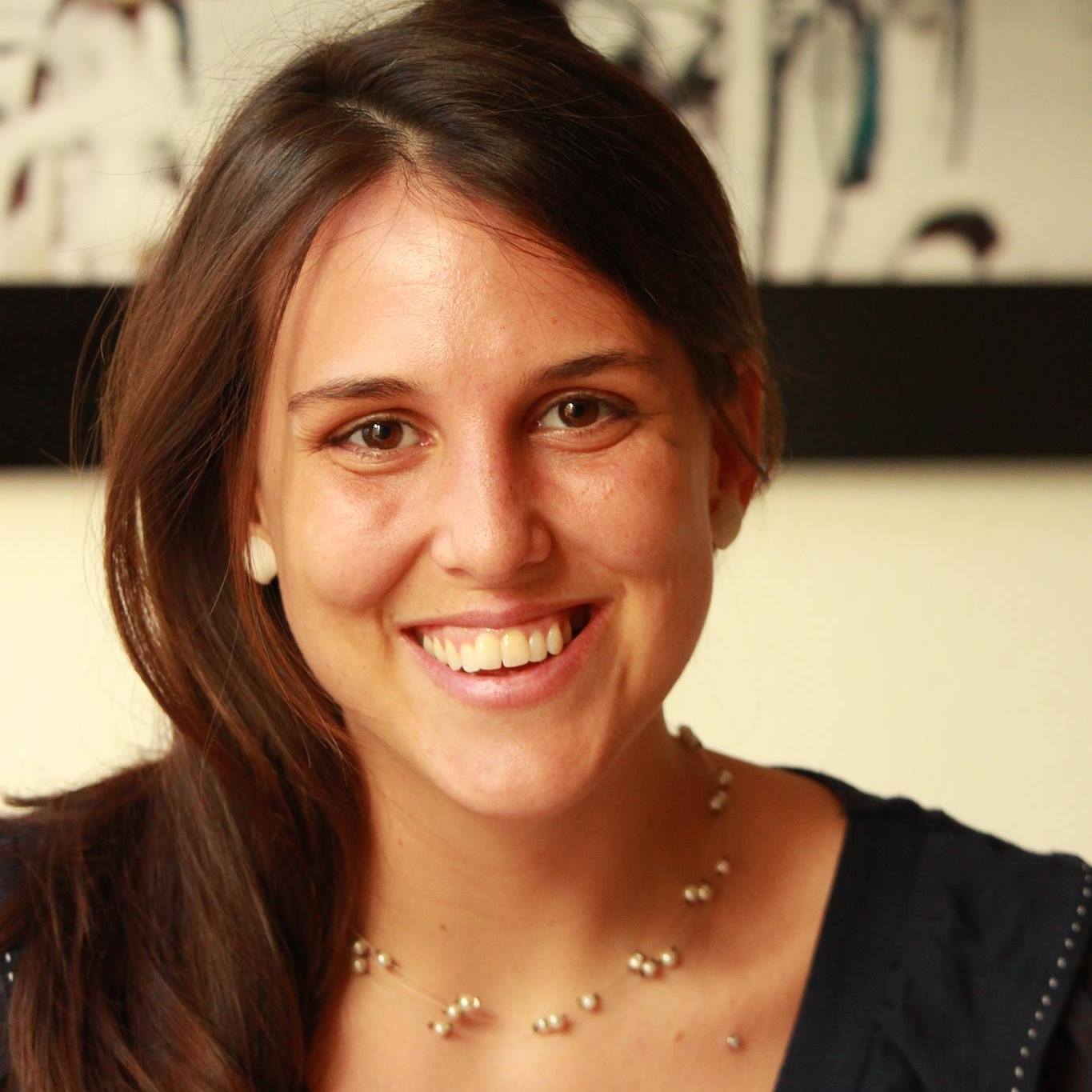 Julia Heuritsch studied Astronomy at the University of Vienna, the Australian National University and Leiden University. By the time she finished her Master she had become unhappy with the “publish or perish system” prevailing in science and subsequently changed to Science and Technology Studies. She then worked as a junior researcher at the Centre for Science and Technology Studies (CWTS, Leiden) for 2 years. In collaboration with Statistics Netherlands (CBS) she performed a quantitative study on the career patterns of doctorate holders. Additionally, she studied their employability. During those years she developed her main project, which is a quantitative and qualitative study of the effects of indicator use in research evaluation on knowledge production in Astronomy. Since 2018 she has been working on that topic as a PhD candidate at Humboldt Universität zu Berlin in the field of Science Studies. She is a member of the junior research group “Reflexive Metrics” and the Berlin Graduate School of Social Sciences (BGSS). Julia’s doctoral dissertation ‘Reflexive Metrics: Reactivity and Practices of the Evaluation Culture in Astronomy’ can be viewed here. Julia also writes blog posts on the science of human behavior that can be read here.
Julia Heuritsch studied Astronomy at the University of Vienna, the Australian National University and Leiden University. By the time she finished her Master she had become unhappy with the “publish or perish system” prevailing in science and subsequently changed to Science and Technology Studies. She then worked as a junior researcher at the Centre for Science and Technology Studies (CWTS, Leiden) for 2 years. In collaboration with Statistics Netherlands (CBS) she performed a quantitative study on the career patterns of doctorate holders. Additionally, she studied their employability. During those years she developed her main project, which is a quantitative and qualitative study of the effects of indicator use in research evaluation on knowledge production in Astronomy. Since 2018 she has been working on that topic as a PhD candidate at Humboldt Universität zu Berlin in the field of Science Studies. She is a member of the junior research group “Reflexive Metrics” and the Berlin Graduate School of Social Sciences (BGSS). Julia’s doctoral dissertation ‘Reflexive Metrics: Reactivity and Practices of the Evaluation Culture in Astronomy’ can be viewed here. Julia also writes blog posts on the science of human behavior that can be read here.
Email: julia.heuritsch@gmail.com
Lauren Reid
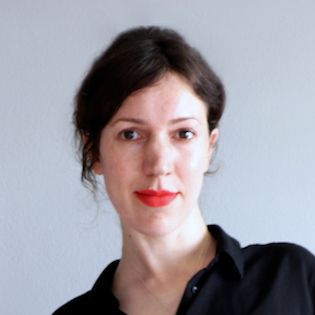 Lauren Reid is a PhD Candidate in Social and Cultural Anthropology at the Freie Universität, Berlin with the research project ‘Thinking Beyond the Final Frontier: Cosmic Imaginaries in Thailand’. Based upon ethnographic fieldwork focused on scientific, religious and artistic communities in Thailand, she investigates how futures beyond Earth are envisioned and planned for in Thailand today. The underlying aim of this research is to consider how various Thai ontologies might offer alternative understandings to ‘frontier thinking’, so common to dominant discussions around space. Her research interests include: anthropology of outer space, the Anthropocene, posthumanism, animism, futures, PSI experiences and decolonial theory. Lauren is additionally an independent curator, co-director of the curatorial collective ‘insitu’, and a lecturer in Curatorial Practice at Node Centre for Curatorial Studies.
Lauren Reid is a PhD Candidate in Social and Cultural Anthropology at the Freie Universität, Berlin with the research project ‘Thinking Beyond the Final Frontier: Cosmic Imaginaries in Thailand’. Based upon ethnographic fieldwork focused on scientific, religious and artistic communities in Thailand, she investigates how futures beyond Earth are envisioned and planned for in Thailand today. The underlying aim of this research is to consider how various Thai ontologies might offer alternative understandings to ‘frontier thinking’, so common to dominant discussions around space. Her research interests include: anthropology of outer space, the Anthropocene, posthumanism, animism, futures, PSI experiences and decolonial theory. Lauren is additionally an independent curator, co-director of the curatorial collective ‘insitu’, and a lecturer in Curatorial Practice at Node Centre for Curatorial Studies.
Email: lauren@lauren-reid.com
Website: lauren-reid.com
Makar Tereshin
 Makar Tereshin received a Bachelor’s degree in Liberal Arts and Sciences from Saint Petersburg State University. Currently he is working on an MA thesis at the University of Tartu. As an anthropologist he is conducting long-term fieldwork in the European North of Russia, within areas involved in the activity of the Plesetsk Launch Site. His research focuses on local people’s strategies of coping with reality in the context of post-socialist transition and practices of cosmic metal collection (used boosters falling into the local forests after launches) and its distribution. He is interested in how the practices that emerged at the time are built into existing customary laws and local systems of interaction with the surrounding landscape and resources. Another focus of his research is the relationship of different communities, neighboring the ranges, with the Cosmodrome and the state authorities in the framework of the Russian space program and its impact on the area.
Makar Tereshin received a Bachelor’s degree in Liberal Arts and Sciences from Saint Petersburg State University. Currently he is working on an MA thesis at the University of Tartu. As an anthropologist he is conducting long-term fieldwork in the European North of Russia, within areas involved in the activity of the Plesetsk Launch Site. His research focuses on local people’s strategies of coping with reality in the context of post-socialist transition and practices of cosmic metal collection (used boosters falling into the local forests after launches) and its distribution. He is interested in how the practices that emerged at the time are built into existing customary laws and local systems of interaction with the surrounding landscape and resources. Another focus of his research is the relationship of different communities, neighboring the ranges, with the Cosmodrome and the state authorities in the framework of the Russian space program and its impact on the area.
Email: makar.tereshin@gmail.com
Eugene Kuchinov
 Eugene is a lecturer and head of the “Écrits” Laboratory at Minin University, Nizhny Novgorod, Russia. His work is located at the intersection of the philosophy and history of utopia. A key topic that primarily interests him is that of unfulfilled histories of space exploration and modern cosmic utopias/fiction. He is a historian of Russian Cosmism and a publisher of the texts of anarcho-cosmists, such as the Gordin Brothers and Alexander Svyatogor. His current research project is titled: ‘Cosmos of Anarchy: Technology, Language, Imagination’. It is dedicated to the study of the technological imagination and cosmo-linguistic experiments of Russian anarcho-cosmists, as well as testing the conceptual potential of anarcho-cosmism. Other areas of study thus include cosmolinguistics (from AO to Lincos and further) and cosmotechnics (mainly DIY technologies by enthusiasts and visionaries).
Eugene is a lecturer and head of the “Écrits” Laboratory at Minin University, Nizhny Novgorod, Russia. His work is located at the intersection of the philosophy and history of utopia. A key topic that primarily interests him is that of unfulfilled histories of space exploration and modern cosmic utopias/fiction. He is a historian of Russian Cosmism and a publisher of the texts of anarcho-cosmists, such as the Gordin Brothers and Alexander Svyatogor. His current research project is titled: ‘Cosmos of Anarchy: Technology, Language, Imagination’. It is dedicated to the study of the technological imagination and cosmo-linguistic experiments of Russian anarcho-cosmists, as well as testing the conceptual potential of anarcho-cosmism. Other areas of study thus include cosmolinguistics (from AO to Lincos and further) and cosmotechnics (mainly DIY technologies by enthusiasts and visionaries).
Email: pph.pop.philosophy@gmail.com
Paola Castaño
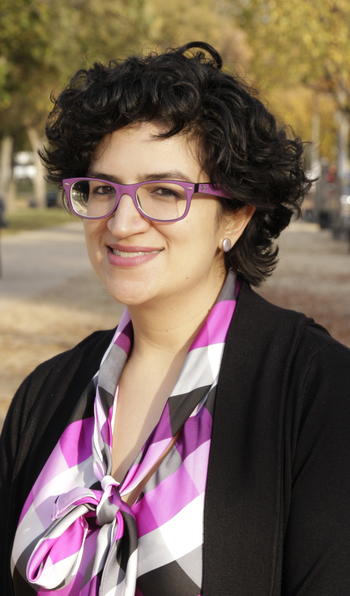 Paola Castaño is a Newton International Fellow funded by The British Academy at Cardiff University. Her fields of research are sociology of science and knowledge, epistemology of the social sciences, human space exploration, art and science, sociology of morality, and public communication of astronomy. She is currently working on a book about the meanings and valuations of scientific research on the International Space Station. On the basis of ethnographic work following the life course of experiments sent to the station, the book examines the fields of particle physics, plant biology and biomedical research. She has a PhD in sociology from the University of Chicago and has been a postdoctoral researcher at the Smithsonian Air and Space Museum in Washington DC, the Free University of Berlin, and Waseda University in Tokyo.
Paola Castaño is a Newton International Fellow funded by The British Academy at Cardiff University. Her fields of research are sociology of science and knowledge, epistemology of the social sciences, human space exploration, art and science, sociology of morality, and public communication of astronomy. She is currently working on a book about the meanings and valuations of scientific research on the International Space Station. On the basis of ethnographic work following the life course of experiments sent to the station, the book examines the fields of particle physics, plant biology and biomedical research. She has a PhD in sociology from the University of Chicago and has been a postdoctoral researcher at the Smithsonian Air and Space Museum in Washington DC, the Free University of Berlin, and Waseda University in Tokyo.
Email: mailto:castanop@cardiff.ac.uk
Peter Dickens
 Based with the Department of Sociology at the University of Cambridge, for the last 15 years I have been studying outer space from a sociological perspective. My work has examined (1) the social and economic processes underlying the humanisation of the cosmos, (2) the emerging space industries and their implications for ground-based labour-forces, (3) the impacts on the body of space-humanisation, (4) the relationships between space programmes and artistic representations. My work has been widely published, often in close collaboration with James Ormrod. See in particular our Cosmic Society (Routledge 2007) and The Palgrave Handbook of Society, Culture and Outer Space (2016).
Based with the Department of Sociology at the University of Cambridge, for the last 15 years I have been studying outer space from a sociological perspective. My work has examined (1) the social and economic processes underlying the humanisation of the cosmos, (2) the emerging space industries and their implications for ground-based labour-forces, (3) the impacts on the body of space-humanisation, (4) the relationships between space programmes and artistic representations. My work has been widely published, often in close collaboration with James Ormrod. See in particular our Cosmic Society (Routledge 2007) and The Palgrave Handbook of Society, Culture and Outer Space (2016).
Email: mailto:p.dickens1@ntlworld.com
Alessandra Marino
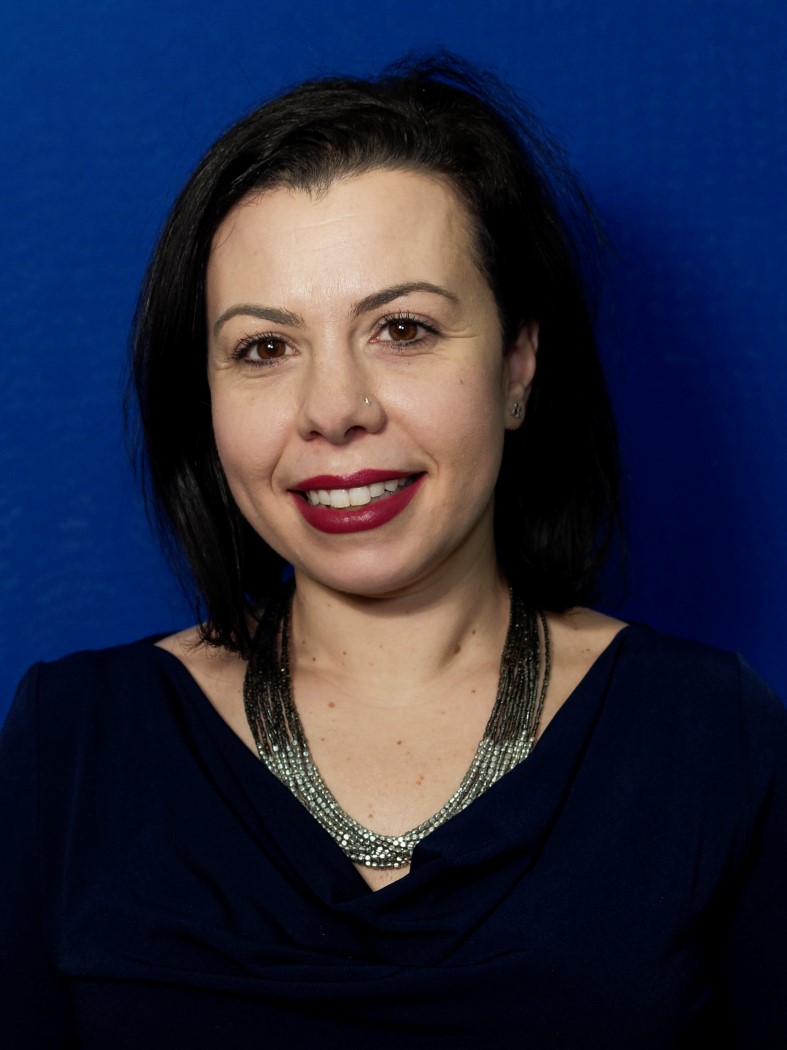
I hold a PhD in Postcolonial and Cultural Studies awarded by the University of Naples, L’Orientale (Italy) and I have long been interested in the relation between literary productions and politics. I am the author of Acts of Angry writing (Wayne State University Press, 2015), a monograph based on fieldwork in Adivasi communities in Northern India.
Email: mailto:alessandra.marino@open.ac.uk
Julie Patarin-Jossec
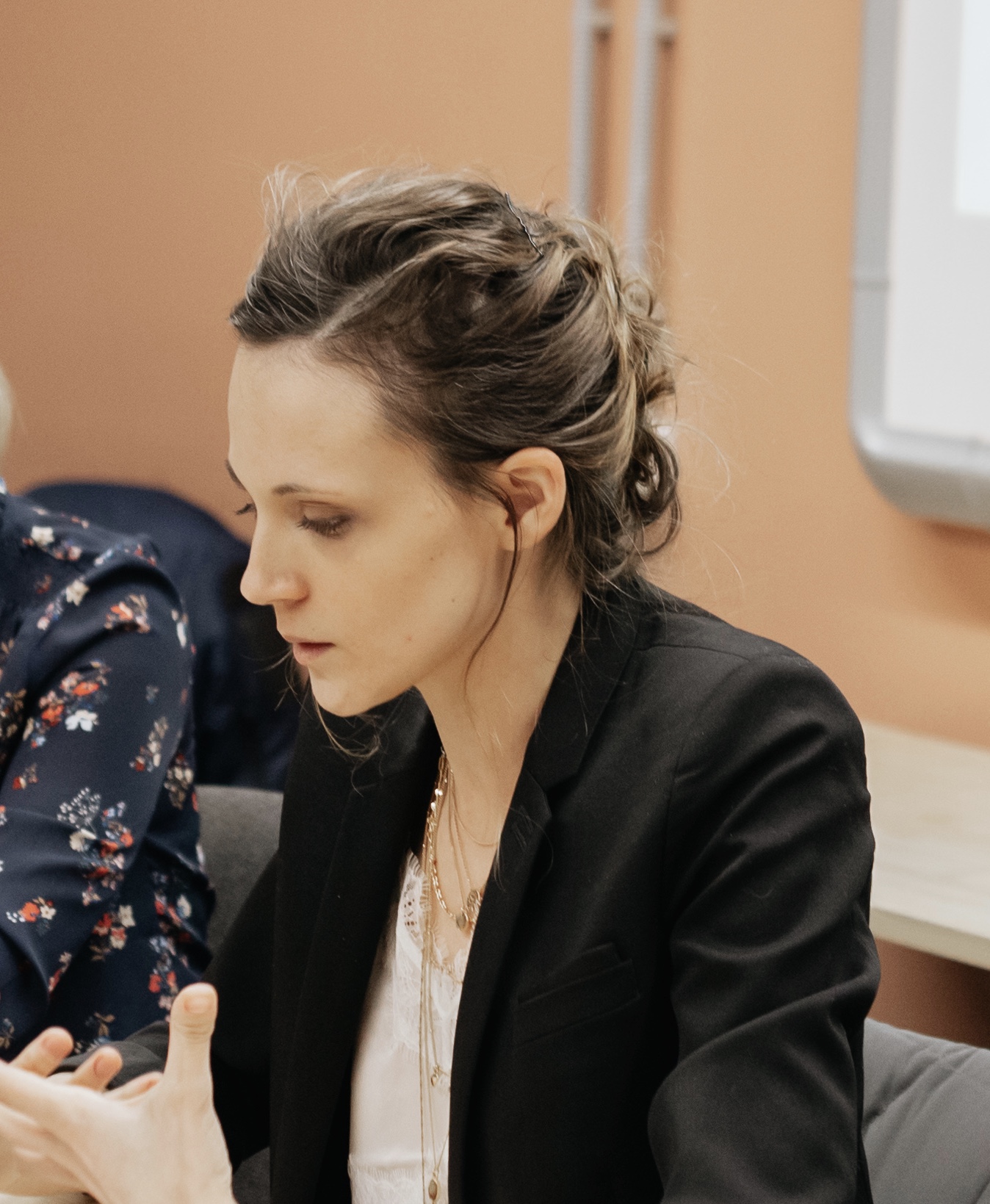 Julie Patarin-Jossec holds a PhD in sociology from the University of Bordeaux (France). Her dissertation was entitled ‘Human spaceflight in the symbolic economy of the European building’. Based on a three years ethnography of the astronaut training and ground support activities in European and Russian control centres, it emphasised the role of the International Space Station programme in the reconstruction of post-Soviet Europe ‘from the below’, e.g. from the astronauts’ embodiment process. Her forthcoming book, ‘The manufacture of the astronaut: a terrestrial ethnography of the International Space Station’, partly results from this research. As part of her ethnography, she uses art-based methods and visual sociology, including photography and documentary cinema. She currently teaches at St. Petersburg State University (Russia). With a keen interest in design and always in a visual studies perspective, she recently developed research projects dedicated to space habitats and the future of human life in space exploration contexts.
Julie Patarin-Jossec holds a PhD in sociology from the University of Bordeaux (France). Her dissertation was entitled ‘Human spaceflight in the symbolic economy of the European building’. Based on a three years ethnography of the astronaut training and ground support activities in European and Russian control centres, it emphasised the role of the International Space Station programme in the reconstruction of post-Soviet Europe ‘from the below’, e.g. from the astronauts’ embodiment process. Her forthcoming book, ‘The manufacture of the astronaut: a terrestrial ethnography of the International Space Station’, partly results from this research. As part of her ethnography, she uses art-based methods and visual sociology, including photography and documentary cinema. She currently teaches at St. Petersburg State University (Russia). With a keen interest in design and always in a visual studies perspective, she recently developed research projects dedicated to space habitats and the future of human life in space exploration contexts.
Website: https://juliepatarinjossec.com
Inga Popovaite
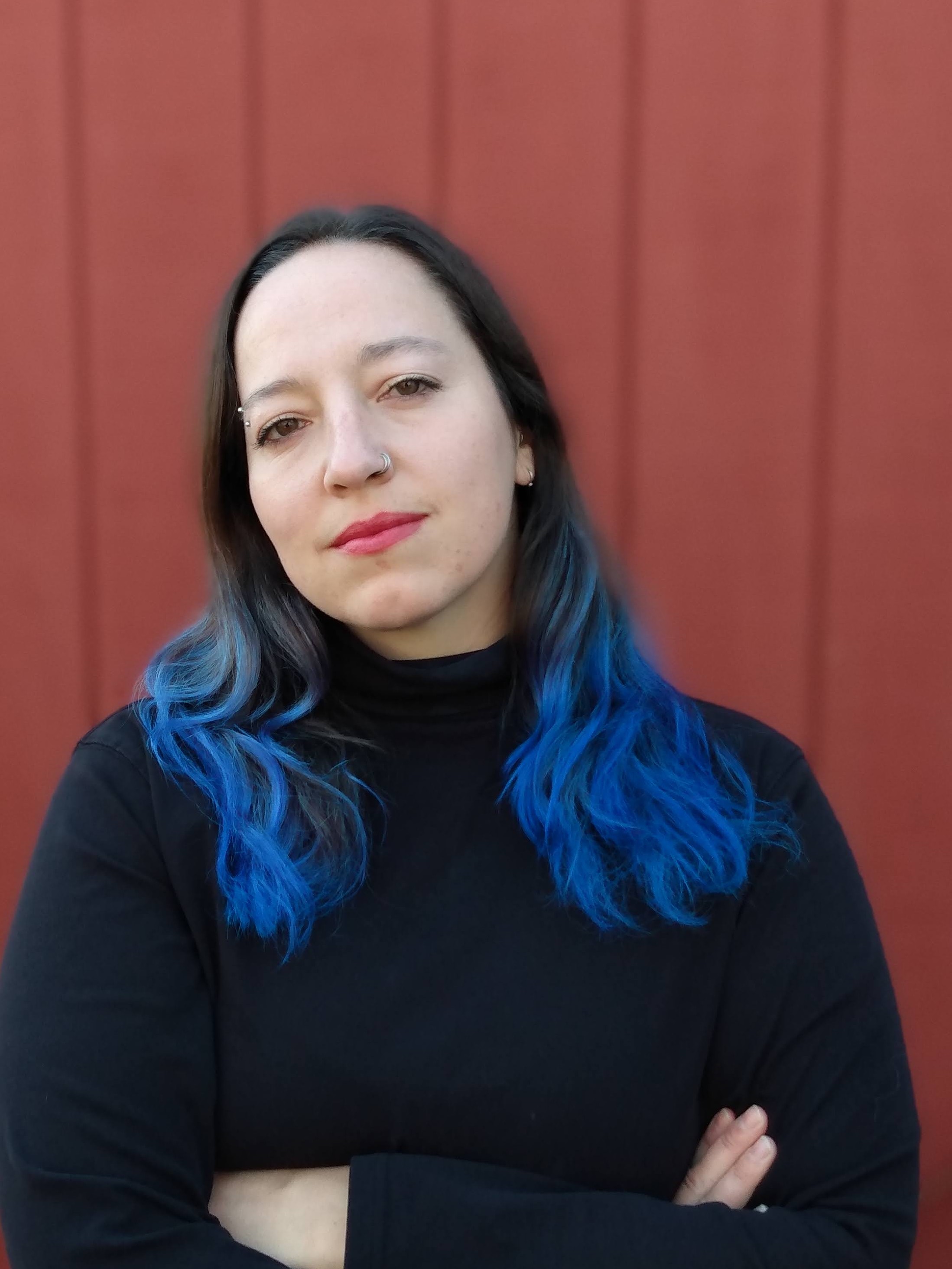
Dr. Inga Popovaite is a researcher at Kaunas University of Technology. She received her PhD in Sociology at the University of Iowa. In her work, Inga examines how society-level inequalities influence small group dynamics in environments that share some similarities with human space flight and long-term extraterrestrial habitats (space analogs). Her recent work has been published by the Journal of Human Performance in Extreme Environments and Acta Astronautica. Her writings have also been published by The Conversation and Space News.
Find more about Inga’s research here: https://popovaite.com/. You can connect with her on Twitter @inga_pop or find her on LinkedIn.
Email: inga.popovaite@ktu.lt
Frangton Chiyemura
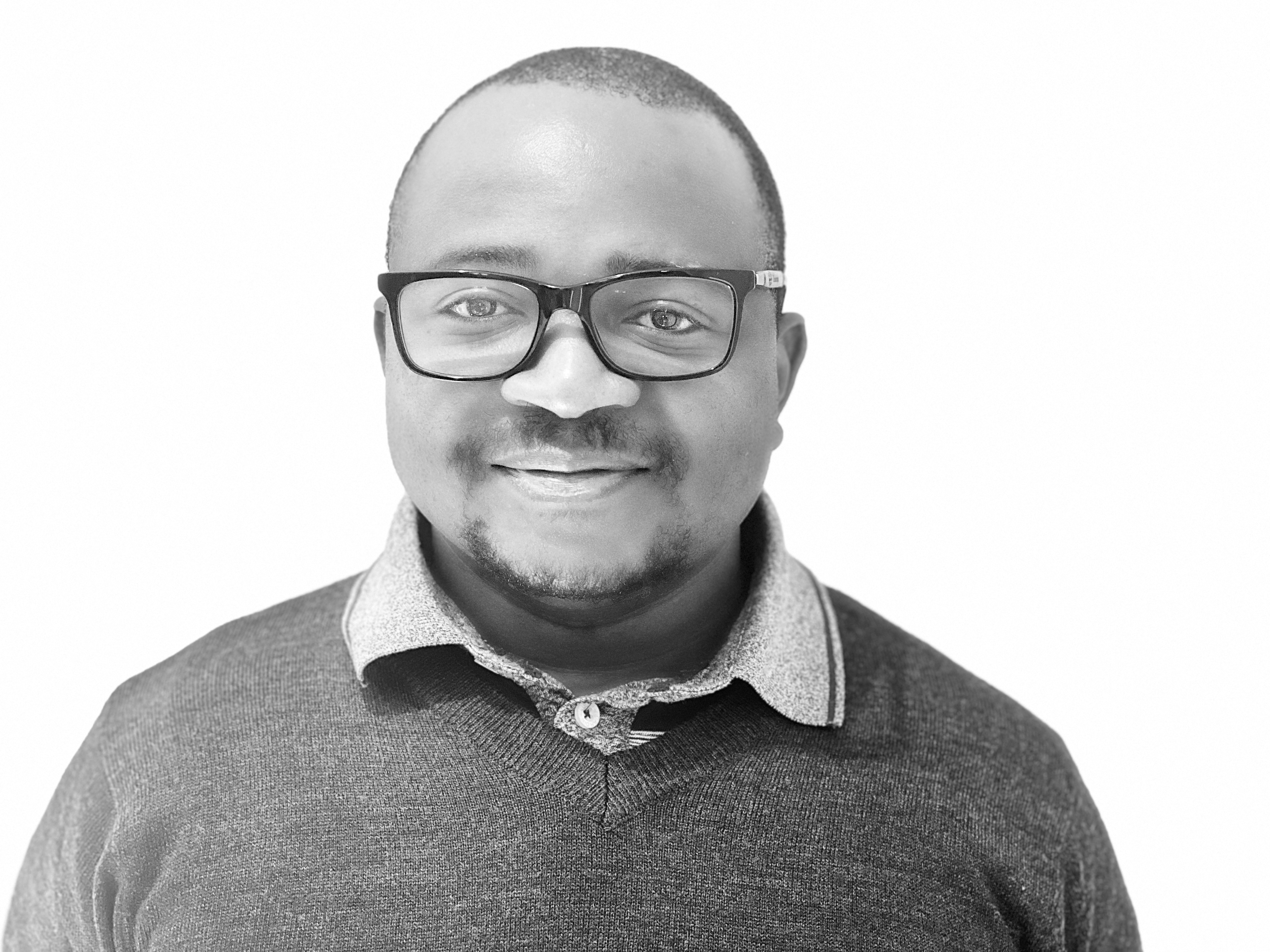
Dr Frangton Chiyemura is a Lecturer in International Development at the Open University, UK. His research focuses on the role of China in Africa’s development trajectories and he is particularly interested in Chinese financing and development of ‘critical infrastructure’ (renewable energy, space infrastructure, telecommunications, transport, and recently, the Belt and Road Initiative) in African countries and how such projects contribute to inclusive growth and structural economic transformation. At the moment, he is working on Chinese participation in the development of Africa’s space infrastructure.
Email: frangtonchiyemura@gmail.com / frangton.chiyemura@open.ac.uk
Elena Ćirković
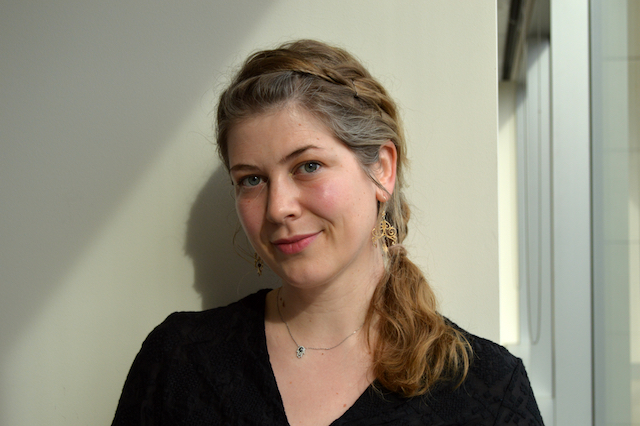 Dr. Cirkovic is a legal scholar currently working on her project at the University of Helsinki (2022, Max Planck Institute Luxembourg for International, European and Regulatory Procedural Law), entitled “Anthropocentrism and Sustainability of the Earth System and Outer Space (ANTARES)”. The project aims to connect Earth System and Outer Space with the application of complex systems approaches, critical theory, and posthuman approaches in contemporary thought. Her work has been funded by Kone Foundation of Finland, Arctic Avenue, administered by the University of Helsinki and Stockholm University, and the Minerva Center for the Rule of Law under Extreme Conditions at the University of Haifa. Dr. Cirkovic has a transdisciplinary background, and her work focuses on international public and private law, outer space law, climate law, human rights, critical theory and philosophy, as well as sustainable design, architecture, and arts.
Dr. Cirkovic is a legal scholar currently working on her project at the University of Helsinki (2022, Max Planck Institute Luxembourg for International, European and Regulatory Procedural Law), entitled “Anthropocentrism and Sustainability of the Earth System and Outer Space (ANTARES)”. The project aims to connect Earth System and Outer Space with the application of complex systems approaches, critical theory, and posthuman approaches in contemporary thought. Her work has been funded by Kone Foundation of Finland, Arctic Avenue, administered by the University of Helsinki and Stockholm University, and the Minerva Center for the Rule of Law under Extreme Conditions at the University of Haifa. Dr. Cirkovic has a transdisciplinary background, and her work focuses on international public and private law, outer space law, climate law, human rights, critical theory and philosophy, as well as sustainable design, architecture, and arts.
Email: elena.cirkovic@helsinki.fi
Website: elenacirkovic.com
Jenia Gorbanenko
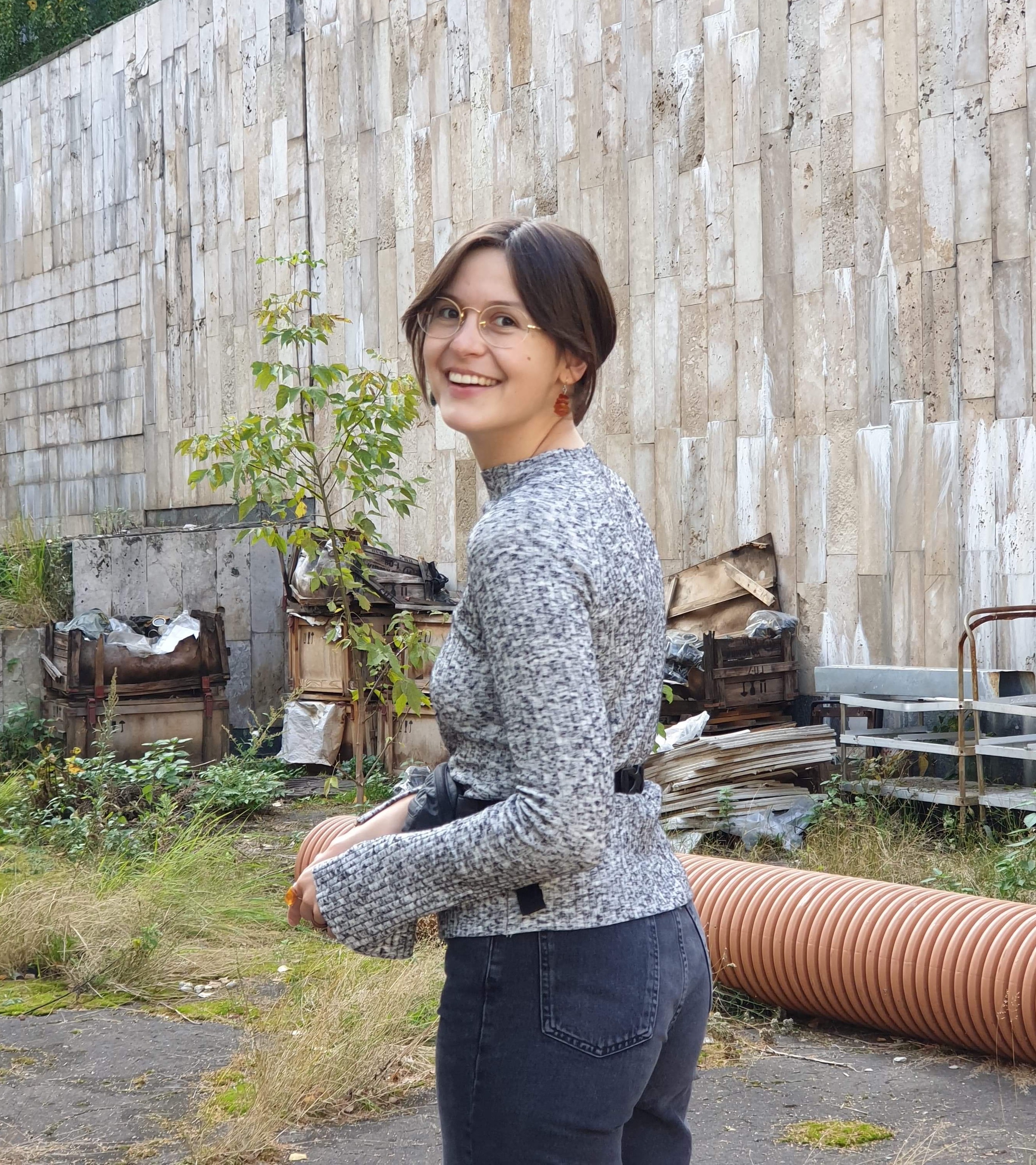 Jenia Gorbanenko is a PhD candidate in anthropology at the University College London (UK). She is part of the ETHNO-ISS project, a European Research Council funded study of the International Space Station (ISS) tasked with producing a comparative multi-sited ethnography of the terrestrial contributors to the life of the orbital station. Prior to joining the ETHNO-ISS team, Jenia’s research focused on the post-Soviet religious revival in Russia. For her doctoral research, she specialises in the anthropology of religion in space and interrogates the Russian Orthodox Christian perspective on space exploration and their role in the life of the ISS.
Jenia Gorbanenko is a PhD candidate in anthropology at the University College London (UK). She is part of the ETHNO-ISS project, a European Research Council funded study of the International Space Station (ISS) tasked with producing a comparative multi-sited ethnography of the terrestrial contributors to the life of the orbital station. Prior to joining the ETHNO-ISS team, Jenia’s research focused on the post-Soviet religious revival in Russia. For her doctoral research, she specialises in the anthropology of religion in space and interrogates the Russian Orthodox Christian perspective on space exploration and their role in the life of the ISS.
Email: Evgeniya.gorbanenko.14@ucl.ac.uk
Twitter: @JGorbanenko
Nelly Bekus
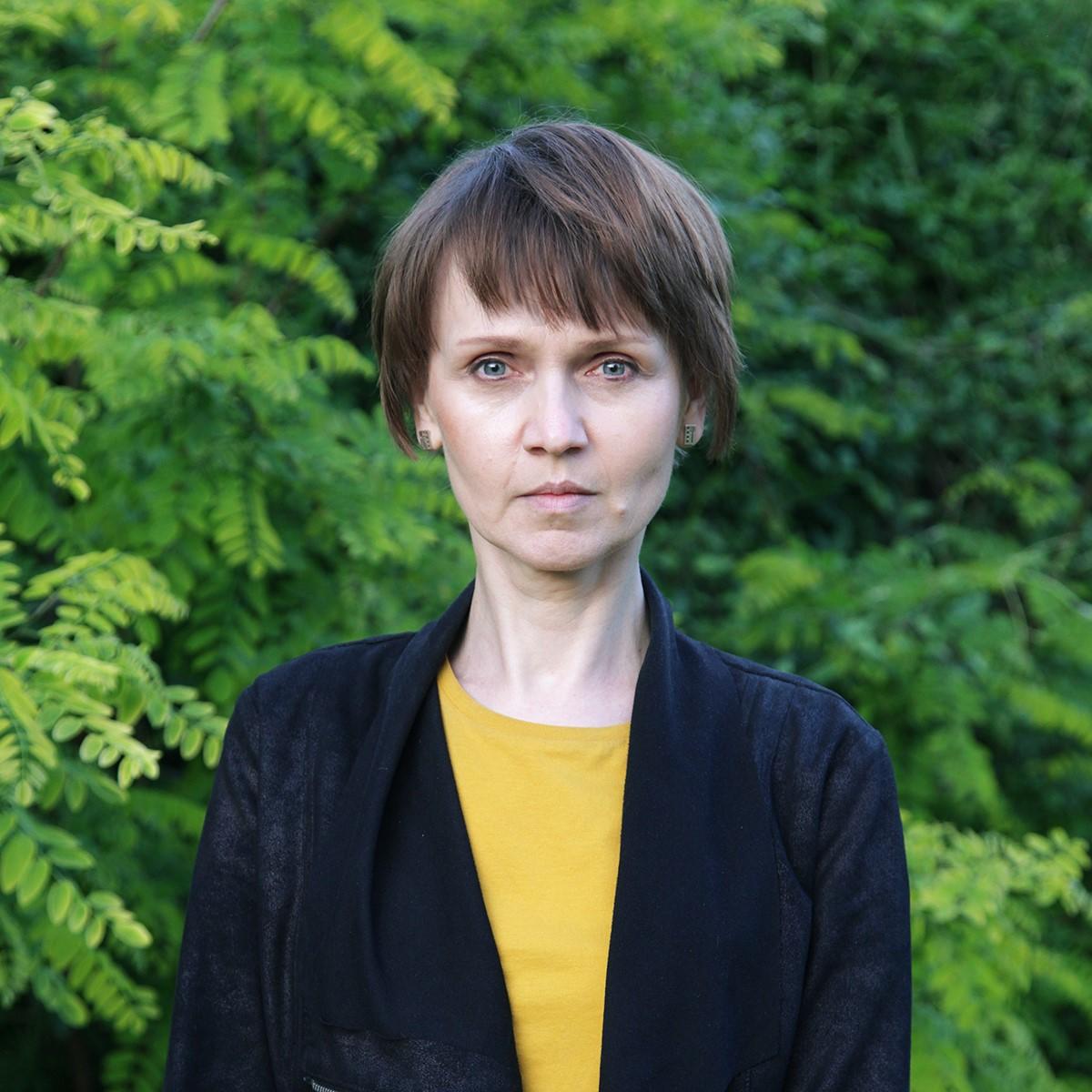 Nelly Bekus is a Lecturer in the Faculty of Humanities, Arts and Social Sciences at the University of Exeter. Previously, she was a visiting scholar at Harvard University and Assistant Professor at the University of Warsaw. In her work she explores the social and cultural workings of outer space in the context of global semi-peripheries and the connections between space technopolitics and postcolonial statecraft and nation building. Recent publications include “Outer space technopolitics and postcolonial modernity Kazakhstan” (Central Asian Survey2021), “Baikonur as a Sacrifice Zone: Eco-nationalism, Sovereignty and Outer Space” (forthcoming), “Emerging space power in Central Asia: Kazakhstan at the Crossroad” (Near East Policy Forum 2022).
Nelly Bekus is a Lecturer in the Faculty of Humanities, Arts and Social Sciences at the University of Exeter. Previously, she was a visiting scholar at Harvard University and Assistant Professor at the University of Warsaw. In her work she explores the social and cultural workings of outer space in the context of global semi-peripheries and the connections between space technopolitics and postcolonial statecraft and nation building. Recent publications include “Outer space technopolitics and postcolonial modernity Kazakhstan” (Central Asian Survey2021), “Baikonur as a Sacrifice Zone: Eco-nationalism, Sovereignty and Outer Space” (forthcoming), “Emerging space power in Central Asia: Kazakhstan at the Crossroad” (Near East Policy Forum 2022).
Email: n.bekus@exeter.ac.uk
Twitter: @nbekus
Karlijn Korpershoek
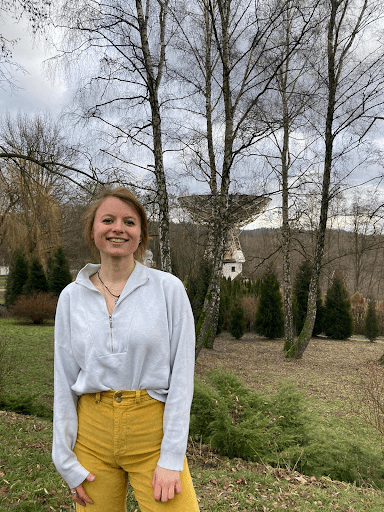
Karlijn Korpershoek is a PhD researcher at the Jagiellonian University. She is part of the ARIES (Anthropological Research into Imaginaries and Explorations of Outer Space) project group and specialises in the social and cultural consequences of large space infrastructures for communities living in their periphery. She is currently in Kourou, French Guiana, for a 7-month research stay to explore the historical, political and social dimensions of the European Space Port. She holds a Bachelor and Master in Social Anthropology from the University of Aberdeen in Scotland.
Email: karlijn.korpershoek@doctoral.uj.edu.pl
Peter Timko
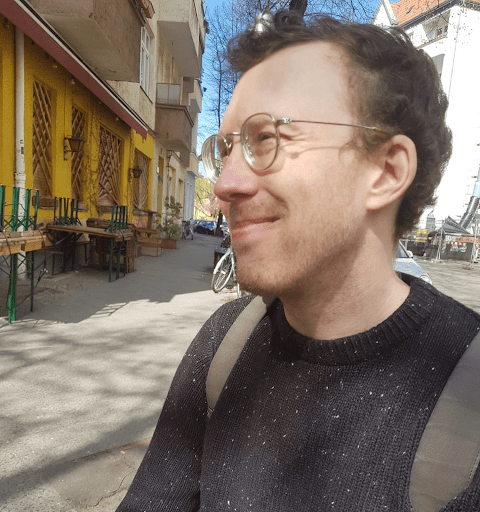
Peter Timko is a PhD researcher at Jagiellonian University and part of the ARIES (Anthropological Research into Imaginaries and Explorations of Outer Space) project. His current work focuses on the social, political, and economic dimensions of the new space economy. He holds a MSc in urban and cultural geography from Radboud University, where he studied precarious labour in the platform economy, and was a research fellow at the PUTSPACE research project at Université libre de Bruxelles. Before joining the ARIES project he was a public librarian, writer, and on-demand delivery cyclist.
Email: peter.n.timko@gmail.com
Twitter: @oort_crowd
Gemma Milne
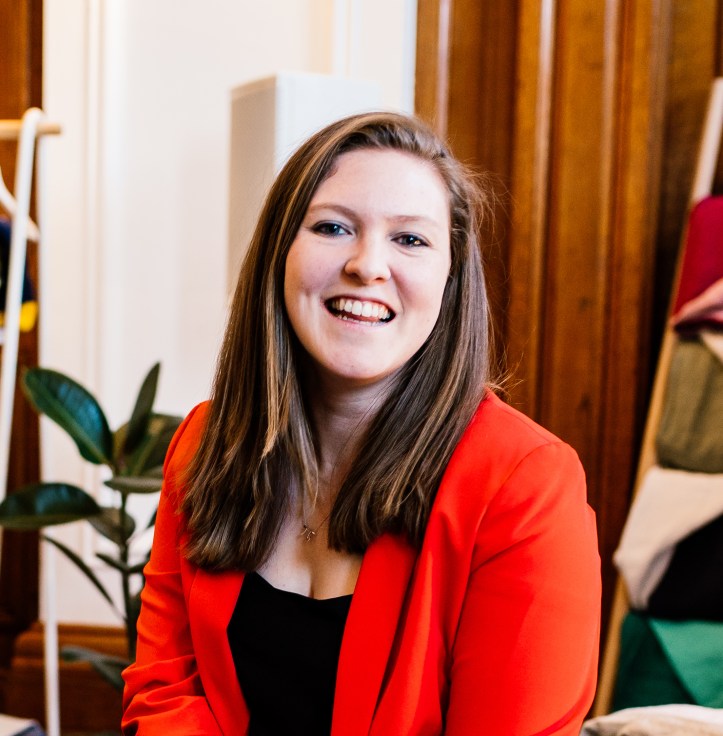
Gemma Milne is a researcher, writer and broadcaster broadly interested in the political economy of deep tech. She is a PhD researcher at the University of Edinburgh looking into the business, social mechanics and narratives of corporate futurism. She is also a research associate at the University of Glasgow in the Social & Digital Change Group; the author of ‘Smoke & Mirrors: How Hype Obscures the Future and How to See Past It’ (2020); co-host of the Radical Science podcast; and a freelance writer and broadcaster for outlets such as the Guardian, the BBC, WIRED and others. She is currently interested in political imagination in the deep tech industry sphere, with a particular focus on so-called ‘New Space’ companies.
Twitter: @gemmamilne
Email: gemma.milne@ed.ac.uk
Nicholas Campion

Nicholas Campion is Associate Professor in Cosmology and Culture, Principal Lecturer in the Institute of Education and Humanities and Director of the Sophia Centre for the Study of Cosmology in Culture at the University of Wales Trinity Saint David, the only academic centre in the world to consider humanity’s relationship with the sky. He is Programme Director of the University’s MAs in Cultural Astronomy and Astrology, and Ecology and Spirituality. He has co-edited four volumes of proceedings of conferences of the European Society for Astronomy in Culture (SEAC) and is the editor of Culture and Cosmos, the journal on the history of cultural astronomy and astrology. His edited volumes include Heavenly Discourses (Sophia Centre Press 2016) and Imagining Other Worlds (with Chris Impey, Sophia Centre Press, 2018). Current projects include the six volume Cultural History of the Universe (Bloomsbury, forthcoming), for which he is General Editor, with Richard Dunn, of the Science Museum.
Website: https://www.uwtsd.ac.uk/staff/nicholas-campion/
Email: n.campion@uwtsd.ac.uk
Darshan Vigneswaran
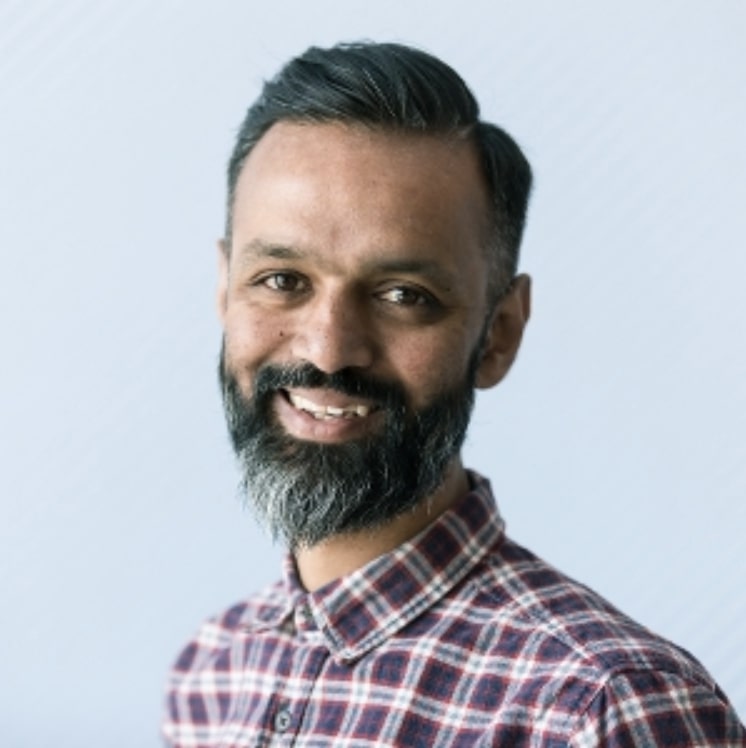
Darshan Vigneswaran is an Associate Professor at the University of Amsterdam. Most of his work is on the politics of migration, but he has been recently been shifting focus to study the movement of humans to outer space environments. He partners with Enrike van Wingerden on the Decolonizing Outer Space project. This team has recently published an article on the ‘Terrestrial Trap’ which seeks to explain what could be gained if Political Science and International Relations scholars began to pay more attention to outer space. They have also built the Space Settlements Database, which lists all of the actors and projects currently working on crewed missions to outer space environments. At present, Darshan is building a project called LUNARGOV, which seeks to understand the constitutional structure of a human community on the moon through grounded work with expert communities in Europe.
Email: d.v.vigneswaran@uva.nl
Enrike van Wingerden
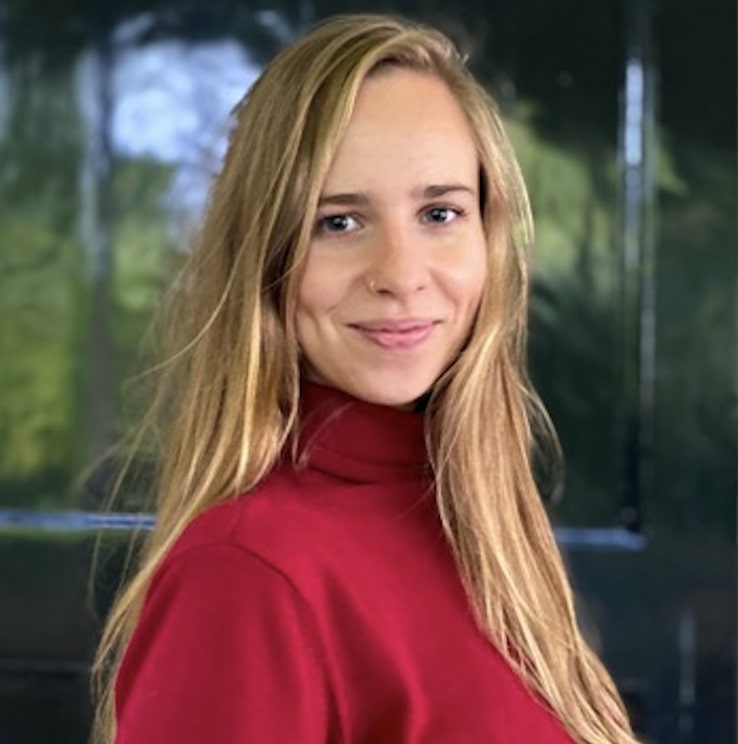
Enrike van Wingerden is a lecturer and researcher at the University of Amsterdam and the Erasmus University Rotterdam. Her work connects environmental politics, colonial histories, and the politics of science and technology. She is collaborating with Darshan Vigneswaran on the Decolonizing Outer Space project, which includes the Space Settlements Database and several research papers on the politics of outer space, such as The Terrestrial Trap: International Relations Beyond Earth. Additionally, Enrike is leading the Satellite Empire project, which investigates the influence of imperial legacies on the new space age through the politics of satellite infrastructure. This project explores the geopolitical impact of the growing importance of satellite imagery and data. It is based on extensive ethnographic fieldwork conducted at emerging satellite launch sites, focusing on both equatorial and polar orbits.
Email: e.vanwingerden2@uva.nl
